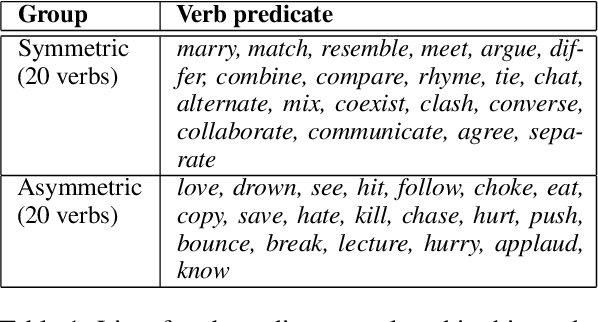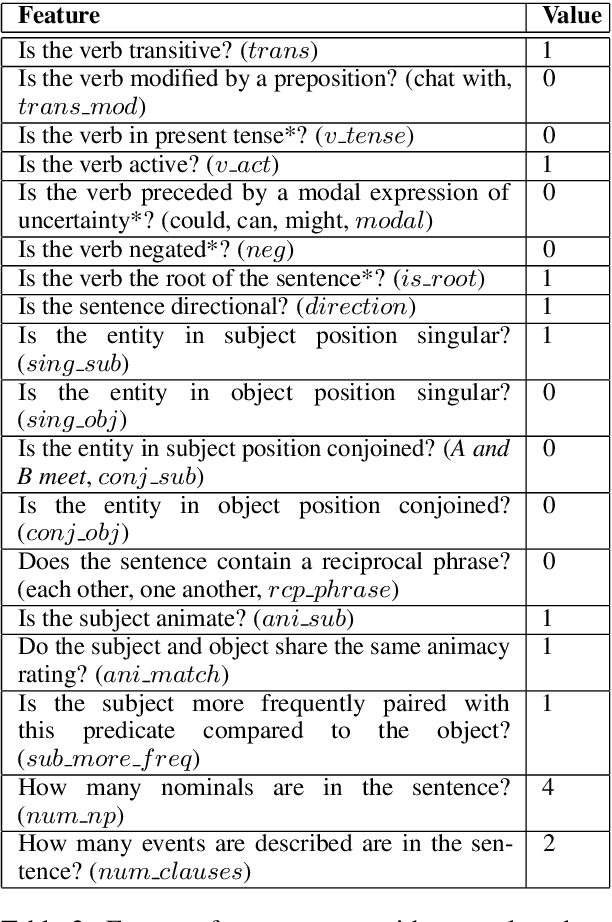Inferring symmetry in natural language
Paper and Code
Oct 16, 2020



We present a methodological framework for inferring symmetry of verb predicates in natural language. Empirical work on predicate symmetry has taken two main approaches. The feature-based approach focuses on linguistic features pertaining to symmetry. The context-based approach denies the existence of absolute symmetry but instead argues that such inference is context dependent. We develop methods that formalize these approaches and evaluate them against a novel symmetry inference sentence (SIS) dataset comprised of 400 naturalistic usages of literature-informed verbs spanning the spectrum of symmetry-asymmetry. Our results show that a hybrid transfer learning model that integrates linguistic features with contextualized language models most faithfully predicts the empirical data. Our work integrates existing approaches to symmetry in natural language and suggests how symmetry inference can improve systematicity in state-of-the-art language models.
 Add to Chrome
Add to Chrome Add to Firefox
Add to Firefox Add to Edge
Add to Edge